#495 Of moose and rhubarb wine
February 28th, 2019

North of Familiar: A Woman’s Story of Homesteading and Adventure in the Canadian Wilderness
by Terry Milos
Halfmoon Bay: Caitlin Press, 2017
$24.95 / 9781987915457
Reviewed by Heather Graham
*
 In the summer of 1974, a newlywed couple from California, completed paperwork in hand, crossed the border into Canada as immigrants to begin a new life. Their destination: north. Nineteen years later, one-half of this couple would pack up and head south, although not so far south that she had to recross a border. The reason? “I had begun to feel like my life needed a change.” The person ready for a change was Terry Milos, and North of Familiar is her story of the years bookended by those two moves.
In the summer of 1974, a newlywed couple from California, completed paperwork in hand, crossed the border into Canada as immigrants to begin a new life. Their destination: north. Nineteen years later, one-half of this couple would pack up and head south, although not so far south that she had to recross a border. The reason? “I had begun to feel like my life needed a change.” The person ready for a change was Terry Milos, and North of Familiar is her story of the years bookended by those two moves.
Most of the action in North of Familiar takes place in British Columbia and the Yukon, but there will be visits to Alaska, two extended return trips to California, and work-related stays in a number of small northern communities. The subtitle promises a story of homesteading and adventure, and it has plenty of both. (Not to mention the parties.) Also lots of people: a — sometimes — bewildering parade of new friends, old friends, and visiting relatives.
The couple’s new life gets off to a rocky start when Milos discovers that she will have trouble qualifying for teaching jobs in Canada until she has a completed university degree and a professional certificate, which means returning to California for a year. Back in Canada once again, both she and her husband find work and begin making friends, but after a few years they both realize that they’re “not as optimistic or content” as they had hoped to be, and they start thinking about heading to Alaska. Their uncertainty comes to an abrupt end when they have the opportunity to buy a cabin on Little Atlin Lake in the Yukon: “This was it: we had found it, the place of our dreams.” Four years after leaving California for the first time, they would finally be settled in their own home.

Terry Milos’s first home on Little Atlin Lake, where she lived for 18 years with no electricity or running water
Milos is young, energetic, and above all enthusiastic; in her own words, she is constantly “excited,” “ecstatic,” “thrilled,” “delighted” by what life has to offer. She embraces her back-to-the-land life with gusto. There is a huge garden and eventually a greenhouse. Cooking on a wood stove to turn out bread, pies, roasted game. Learning how to “corn” bear meat, make moose sausage, smoke and can salmon. Preserving the many varieties of berries and mushrooms that fall brings. Making rhubarb wine, a big hit with her neighbours. In the early 1980s Milos and her husband become parents, but except for giving up teaching for a few years to stay home with her two little boys, motherhood doesn’t slow her down one bit.
As for the wilderness part of life in the north, Milos and her husband are never too far from civilization. Their property may be off the grid in the Yukon, but Atlin, B.C., 88 km to the southwest of Little Atlin Lake, will be an important centre of activity for them. The need to earn a living is never far away, and this is where Milos as teacher, rather than pioneer wife, comes into the picture. Although most of her teaching will be done in Atlin, there are postings to other places, such as Dawson Creek, Carmacks, and Old Crow, a fly-in community almost 950 km north of Atlin. It is her experiences as a teacher that show another side of Milos the no-nonsense back-to-the-lander; despite the challenges, she clearly enjoys her young students and values the opportunity to play a role in their lives.
North of Familiar is a straightforward linear narrative, meaning that the story unfolds chronologically, one year following another, with no fancy flashbacks or unexpected lurches into the territory of lyrical asides. But just as there is inevitably a certain regularity or even sameness to the passing years of a person’s life, reading a linear narrative is a lot like watching someone’s home movies: summer frolics, time to gather the bounty of autumn and prepare for winter, spring at last, and look, here comes another summer of fun. It’s like déjà vu all over again.
Yes, every now and then there are dramatic events that differentiate one year from another, although these episodes seem more like bumps on the road than genuine adventures or even misadventure: an unplanned night spent outdoors in the freezing cold, encounters with bears and wolves, a scary plane ride, a serious vehicle rollover. A scarcity of chronological markers, especially in the first half of the book — meaning that much of the time the reader has no idea what year it is — means that it’s easy to lose one’s bearings as the story progresses.
The problems associated with the book’s linear structure point to a larger question: What exactly is memoir? Is a presentation of events that occurred during a fixed period of time in a person’s life, even if that life is an unusual one, enough? The most unforgettable memoirs are accounts of personal growth, in some cases even transformation. Very early on in North of Familiar, Milos speaks of her years in the north as a time “that would help shape the person I’ve become,” but the story she goes on to tell is silent on how this happened. The suggestion of something deeper than wilderness adventure is a promise not fulfilled.
What North of Familiar has going for it is the richness of its detail. The book is packed with information on the skills needed to live a pioneer life, along with descriptions of the many places Milos visited and the people she met in her travels. It also shows her to be a ready-for-anything kind of woman; she worked hard and played hard in a sometimes dangerous environment, and the reader is sure to come away impressed by what she accomplished in those nineteen years. At a time when many young women were looking for a challenge they could rise to, North of Familiar is clear evidence that Milos found one worthy of her optimism and determined spirit.
*
Heather Graham worked as an editor for nearly thirty years, and during that same time made more than one foray into the seductive but fraught business of bookselling. Now officially retired, she indulges her bookish inclinations by taking on the occasional editing project, as well as trying her hand at the storytelling process itself and doing some of her own writing. She lives on Malcolm Island in Queen Charlotte Strait.
*
The Ormsby Review. More Books. More Reviews. More Often.
Editor/Designer/Writer: Richard Mackie
Publisher/Writer: Alan Twigg
The Ormsby Review is a journal service for serious coverage of B.C. books and authors, hosted by Simon Fraser University. The Advisory Board consists of Jean Barman, Robin Fisher, Cole Harris, Wade Davis, Hugh Johnston, Patricia Roy, David Stouck, and Graeme Wynn. Scholarly Patron: SFU Graduate Liberal Studies. Honorary Patron: Yosef Wosk. As of September, 2018, Provincial Government Patron: Creative BC
“Only connect.” – E.M. Forster
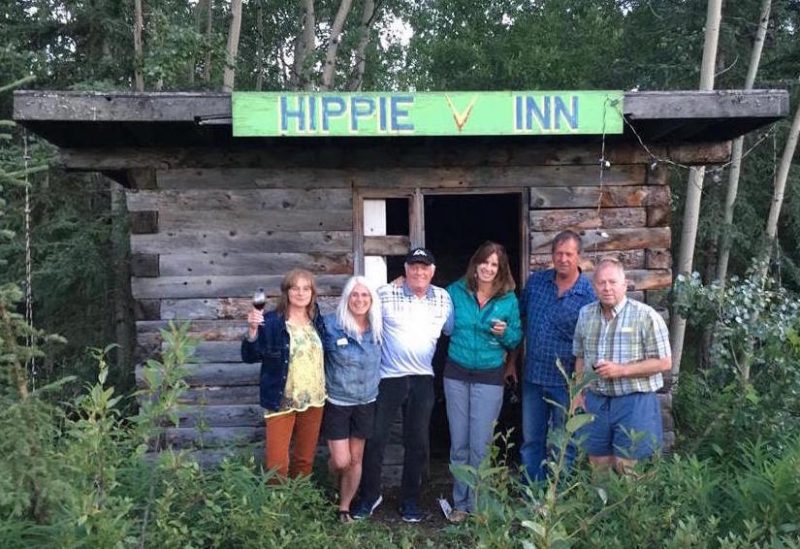
Terry Milos (3rd from right) toasting the new book at the Hippie Inn at Jake’s Corner on the Alaska Highway at Marsh Lake, Yukon, July 2017

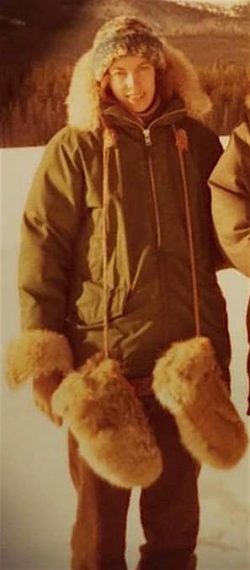
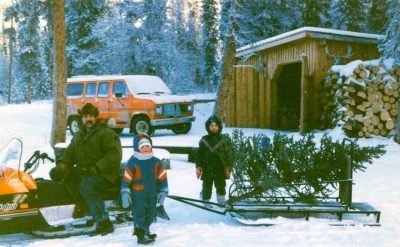
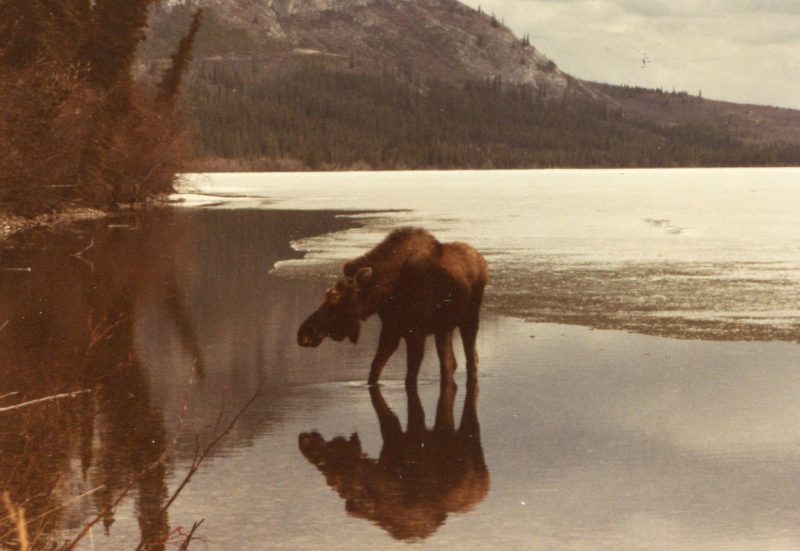
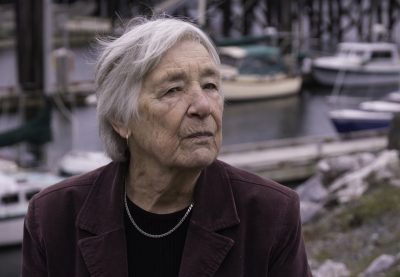
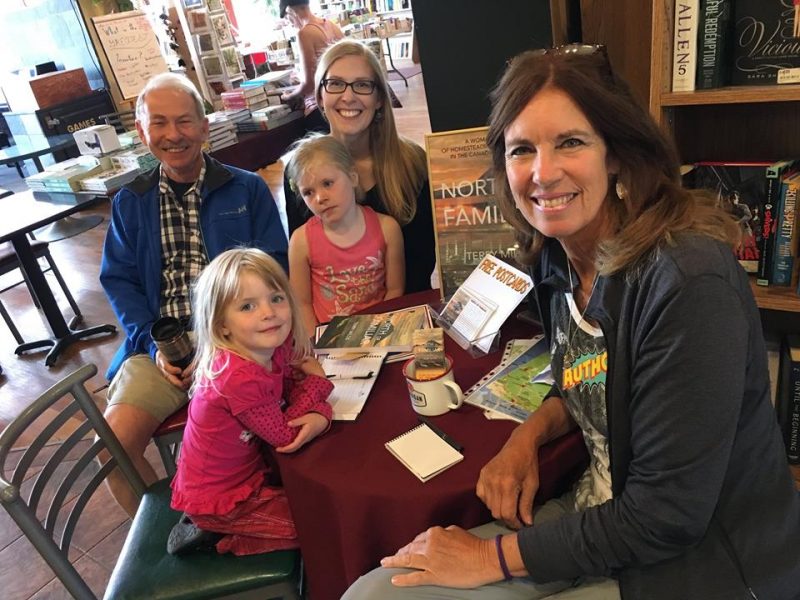
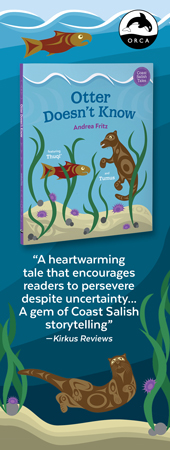
Leave a Reply